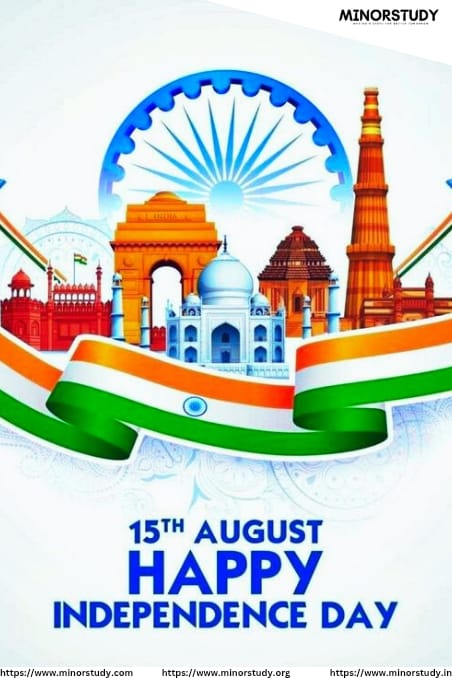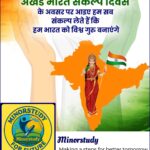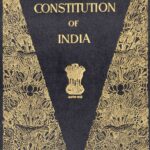Powerful Reasons to Celebrate 15th August – Happy Independence Day with Pride
India’s Independence Day, celebrated every year on 15th August, is not just a date on the calendar – it is a day that stirs emotions of patriotism, pride, and unity in the hearts of over a billion Indians. This day marks the moment in 1947 when India finally broke free from over 200 years of British colonial rule and took its first steps as a sovereign nation. It is a day to remember the sacrifices of our freedom fighters, honor our Constitution, and reaffirm our duty toward the nation.
- History of 15th August – Happy Independence Day
- Important Facts about Independence Day
- Timeline of Key Events Leading to Independence
- Significance of 15th August
- How Independence Day is Observed
- Wishing Messages for Independence Day
- Importance in Our Life
- Daily Life Impacts of Independence Day
- FAQs about 15th August – Independence Day
- Conclusion
History of 15th August – Happy Independence Day
The story of India’s independence is a saga of struggles, sacrifices, and relentless determination. For centuries, India was ruled by various empires, but British colonial rule (1757–1947) brought both deep exploitation and a spark for national awakening.
1857 – First War of Independence: Often called the Sepoy Mutiny, this was the first large-scale uprising against British rule.
1885 – Formation of Indian National Congress: Gave political shape to freedom aspirations.
1920s–1930s – Non-Cooperation & Civil Disobedience Movements: Led by Mahatma Gandhi, promoting peaceful resistance.
1942 – Quit India Movement: A decisive call for immediate British withdrawal.
15 August 1947 – Freedom Dawn: India became independent at the stroke of midnight, with Pandit Jawaharlal Nehru delivering the historic “Tryst with Destiny” speech.
Lord Mountbatten, the last Viceroy of India, chose 15th August because it marked the second anniversary of Japan’s surrender in World War II, a date he considered auspicious.
Important Facts about Independence Day
First Flag Hoisting: Pandit Jawaharlal Nehru hoisted the tricolor at the Red Fort on 15 August 1947.
Partition of India: Independence came with the tragic partition, creating India and Pakistan.
National Holiday: It’s celebrated as a public holiday across the country.
No Chief Guest Tradition in 1947: Unlike Republic Day, Independence Day does not always have a foreign chief guest.
Symbol of Unity: Despite linguistic, religious, and cultural differences, the day brings the entire nation together.
Flag Code of India: The rules for displaying the national flag are defined to maintain respect.
Kite Flying Tradition: Many Indians celebrate by flying colorful kites as a symbol of freedom.
Security Measures: The Red Fort celebrations involve high security due to historical significance.
Freedom Struggle Martyrs: Remembering heroes like Bhagat Singh, Rani Lakshmibai, Netaji Subhas Chandra Bose, and many others.
Global Celebrations: Indian communities abroad also celebrate Independence Day with cultural events.
Timeline of Key Events Leading to Independence
| Year | Event |
|---|---|
| 1857 | First War of Independence |
| 1885 | Formation of Indian National Congress |
| 1905 | Partition of Bengal sparks Swadeshi movement |
| 1919 | Jallianwala Bagh Massacre |
| 1920 | Non-Cooperation Movement |
| 1930 | Dandi March (Salt Satyagraha) |
| 1942 | Quit India Movement |
| 1947 | Independence on 15th August |
Significance of 15th August
Tribute to Freedom Fighters: Honors the sacrifices of those who gave their lives for India’s freedom.
Symbol of Sovereignty: Marks the beginning of self-governance and the end of colonial rule.
Patriotism Booster: Inspires a sense of national pride and belonging.
Unity in Diversity: Reinforces the idea that India’s strength lies in its diversity.
Reminder of Responsibilities: Encourages citizens to work for the progress and integrity of the nation.
How Independence Day is Observed
Flag Hoisting Ceremonies: Across government buildings, schools, and institutions.
Prime Minister’s Speech: From the Red Fort, highlighting the nation’s progress and future goals.
Cultural Programs: Patriotic songs, dances, plays, and poetry.
Kite Flying: A colorful tradition seen especially in Delhi and Gujarat.
Parades & Marches: Showcasing India’s defense forces and achievements.
Lighting & Decorations: Buildings lit up in tricolor lights.
Wishing Messages for Independence Day
“Let’s celebrate the glory of a free India and uphold the pride of being an Indian. Happy Independence Day!”
“Freedom is the gift of our forefathers. Let’s protect it with all our heart. Jai Hind!”
“May the tricolor always fly high, and may our nation prosper forever. Happy 15th August!”
“Saluting our heroes and celebrating our freedom. Happy Independence Day!”
Importance in Our Life
Independence Day is not just about hoisting a flag; it is a reminder that:
Freedom was earned through unimaginable struggles.
We have the right and responsibility to protect our democracy.
Unity and harmony are essential for national progress.
Every citizen has a role in shaping India’s future.
Daily Life Impacts of Independence Day
Sense of Responsibility: Encourages good citizenship.
Cultural Awareness: Strengthens connection to our heritage.
Patriotism in Youth: Inspires future generations.
National Unity: Breaks barriers of religion, caste, and region.
Global Identity: Reminds us to represent India with pride abroad.
FAQs about 15th August – Independence Day
Q1. Who was the first Prime Minister to hoist the flag on Independence Day?
A: Pandit Jawaharlal Nehru on 15 August 1947.
Q2. Why is 15th August chosen as Independence Day?
A: It was the date of Japan’s surrender in WWII and considered auspicious by Lord Mountbatten.
Q3. Is Independence Day celebrated outside India?
A: Yes, Indian communities worldwide celebrate it with cultural events.
Q4. What is the difference between Independence Day and Republic Day?
A: Independence Day marks freedom from British rule; Republic Day marks the adoption of the Constitution.
Q5. What is the importance of kite flying on Independence Day?
A: It symbolizes the joy and freedom of the nation.
Conclusion
15th August – Happy Independence Day is more than just a national holiday; it is a celebration of freedom, unity, and responsibility. The sacrifices of countless patriots gave us the right to live in a free nation, and it is our duty to honor their legacy by contributing to India’s growth.
As we hoist the tricolor every year, let’s also hoist our commitment to being responsible citizens, protecting our democracy, and keeping our national spirit alive.
Jai Hind! Vande Mataram! 🇮🇳








